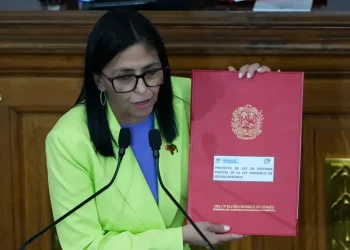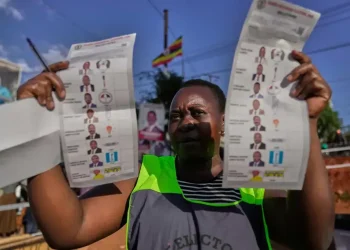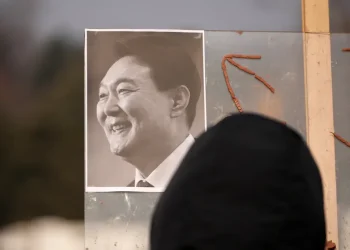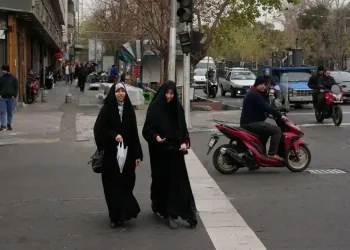Mexico’s First Judicial Elections Spark Hope—And Deep Concern
This Sunday, Mexico is set to make history with its first-ever nationwide judicial elections, a bold shift meant to give citizens a direct voice in shaping the courts. But while supporters are calling it a major step toward judicial transparency, critics are raising red flags about the risks—ranging from political influence to criminal infiltration.
What’s at Stake
Nearly 900 federal judicial positions are up for grabs, including all nine seats on Mexico’s Supreme Court. In total, around 1,800 local positions across 19 states will also be on the ballot. This marks the first phase of a two-part reform, with a second round of elections scheduled for 2027.
The elections stem from a constitutional overhaul passed in the final weeks of President Andrés Manuel López Obrador’s term. He framed the reform as a way to combat corruption and impunity, insisting that voters should have a say in who sits on the bench.
But not everyone is convinced.
Supporters Say: Power to the People
Backers of the reform argue that allowing citizens to elect judges will democratize the judiciary and reduce elite control. They point to campaign restrictions—such as bans on political party backing, no public or private funding, and no TV or radio ads—as guardrails to protect independence and limit corruption.
Instead, candidates can promote themselves through social media, interviews, and public forums.
Once elected, judges will be monitored by a new Judicial Disciplinary Tribunal, which has the authority to investigate, suspend, fine, or dismiss judges—except for Supreme Court justices and electoral magistrates.
Critics Say: A Threat to Judicial Independence
Opponents worry this model opens the door to political capture. Even though political parties are banned from nominating candidates, the Evaluation Committees—made up of the three branches of government—handle that process. And if one party dominates those branches, as the ruling Morena party currently does, it could heavily influence who ends up on the ballot.
“Right now, numerically, who holds the most influence… would be the Morena party,” said Stephanie Brewer, Mexico director at the Washington Office on Latin America.
Critics also question whether elected judges can remain truly independent and impartial, especially without party money but with the freedom to campaign online—where influence can be subtle and less regulated.
Crime and Cartels Loom Large
Perhaps the biggest worry of all is the threat from organized crime.
Mexico has a troubling history of political violence, and rights groups fear cartels could exploit the judicial elections. In past political races, drug gangs have used threats—and even assassinations—to influence outcomes. In 2023 alone, human rights group Data Cívica documented 661 attacks tied to political-criminal violence.
Now, analysts warn cartels may try to infiltrate local judiciaries by backing—or intimidating—candidates.
“Cartels could identify possible winners and offer them support in exchange for loyalty,” said Miguel Meza of the rights group Defensorxs.
So far, no attacks have been reported against judicial candidates, but watchdogs say the threat is real. And questions are already being raised about the backgrounds of some candidates.
Controversial Candidates Raise Eyebrows
Defensorxs has flagged several candidates with troubling pasts:
- One was convicted in the U.S. for smuggling over 4 kilograms of meth and spent nearly six years in prison.
- Another served as a defense attorney for drug kingpin El Chapo Guzmán.
The organization has filed formal complaints to Mexico’s National Electoral Institute (INE), but was told those candidates cannot be disqualified at this stage. If they win, however, the results may be challenged in court.
Final Thoughts
As Mexico heads into this unprecedented election, the country finds itself at a crossroads. Will electing judges strengthen public trust and transparency? Or will it open the door to political manipulation and cartel control?
With nearly 2,700 judicial seats hanging in the balance, this Sunday’s vote may mark a turning point for Mexico’s democracy—or a serious test of its resilience.
This article was rewritten by JournosNews.com based on verified reporting from trusted sources. The content has been independently reviewed, fact-checked, and edited for accuracy, neutrality, tone, and global readability in accordance with Google News and AdSense standards.
All opinions, quotes, or statements from contributors, experts, or sourced organizations do not necessarily reflect the views of JournosNews.com. JournosNews.com maintains full editorial independence from any external funders, sponsors, or organizations.
Stay informed with JournosNews.com — your trusted source for verified global reporting and in-depth analysis. Follow us on Google News, BlueSky, and X for real-time updates.














